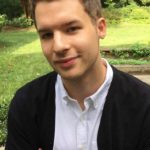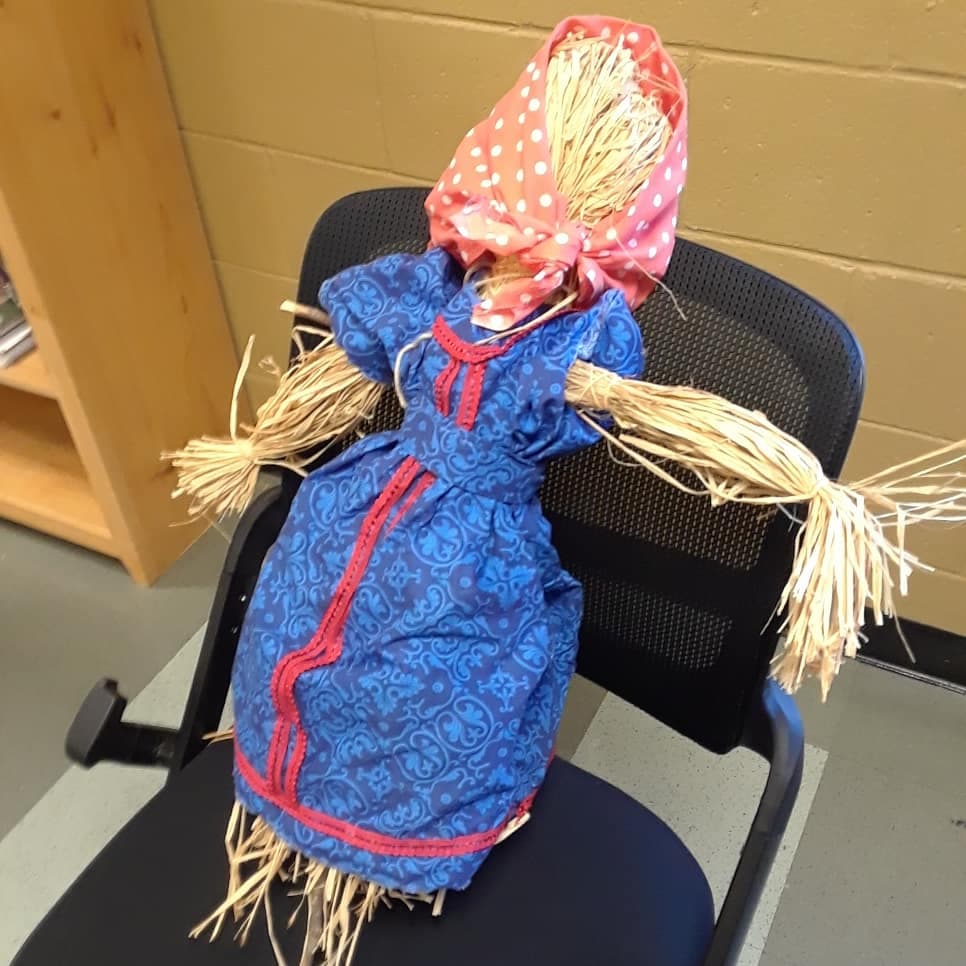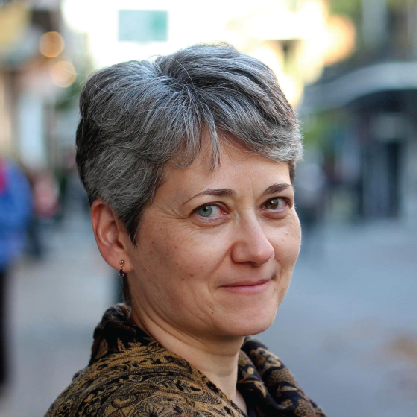In this inaugural piece in our new Hispanic Studies series for Global Voices—“Spotlight on Alumni Careers and the Hispanic Studies Major”, we profile five of our alumni from graduating classes spanning an almost two decade period. All alumni are either practicing medical doctors, medical school students, or W&M graduates accepted into med school. All share reflections about the relevance and significance of their education and training as Hispanic Studies major, in terms of preparation for medical school and the practice of medicine more generally.
Philip Grotz
William & Mary Class of 2020
UVA School of Medicine Class of 2024
 Being a pre-med, I was often asked why I was so masochistic to take up a major in Hispanic Studies on top of my primary major in Neuroscience. In truth, my time in Hispanic Studies was anything but painful. Rather, I feel like all of my best college experiences came as a result of my involvement in the Hispanic Studies program, from studying jazz-flamenco music while abroad in Cádiz, Spain, to working as a medical interpreter on the Eastern Shore of Virginia. To me, pursuing this degree was never a distraction from my pre-med studies, but rather a unique way to pursue my interests that I believe made me a much stronger medical school applicant than I would have been otherwise. The type of student that med schools look for is exactly what my Hispanic Studies education helped me to become: a student who is unique and will contribute to community diversity, who understands the issues impacting inequality of care, and who has compassion for all people. When I worked as a Spanish-speaking medical interpreter, it was important to understand the systemic problems preventing non-English speakers from receiving healthcare in order to be an advocate for those patients when the system treats them unfairly.
Being a pre-med, I was often asked why I was so masochistic to take up a major in Hispanic Studies on top of my primary major in Neuroscience. In truth, my time in Hispanic Studies was anything but painful. Rather, I feel like all of my best college experiences came as a result of my involvement in the Hispanic Studies program, from studying jazz-flamenco music while abroad in Cádiz, Spain, to working as a medical interpreter on the Eastern Shore of Virginia. To me, pursuing this degree was never a distraction from my pre-med studies, but rather a unique way to pursue my interests that I believe made me a much stronger medical school applicant than I would have been otherwise. The type of student that med schools look for is exactly what my Hispanic Studies education helped me to become: a student who is unique and will contribute to community diversity, who understands the issues impacting inequality of care, and who has compassion for all people. When I worked as a Spanish-speaking medical interpreter, it was important to understand the systemic problems preventing non-English speakers from receiving healthcare in order to be an advocate for those patients when the system treats them unfairly.
In general, I feel like I gained a significant amount of confidence as this course of study made me come to terms with new situations. These include taking solo trips to jazz performances while studying abroad, thinking on my feet to communicate with individuals who spoke unfamiliar dialects while I was interpreting, and most recently, travelling to Cuba just out of my own personal interest. I cannot imagine what my education would have been like without this degree. Everything I learned from my Neuroscience major I will eventually be taught again, but the way that Hispanic Studies has introduced me to other perspectives, improved my interpersonal skills, and strengthened my moral convictions will never be replaced. Granted, my double-major might have made me a little busier than I would have been otherwise, but I’m sure it only served to better prepare me for the *actually* busy times, which are yet to come.
Maren Leibowitz, MD
William &Mary Class of 2015
University of Virginia School of Medicine Class of 2019
Emergency Medicine Resident at Northwestern Memorial Hospital in Chicago, IL
 It has never been more apparent how crucial my major in Hispanic Studies has been to my development as a doctor than during the 2020 COVID-9 pandemic. As an emergency medicine resident physician training in downtown Chicago, I interact with Spanish-speaking patients and their families every day. In non-pandemic times, navigating fears and complex medical situations in English is hard; navigating those same thoughts and feelings in Spanish is even harder. Add in the uncertainty of a pandemic when family members are not allowed to accompany their loved ones into the hospital, the task seems almost impossible. My Hispanic Studies classes and experiences at William & Mary gave me the confidence to speak Spanish knowing that I am understood by my patients and equipped me with the knowledge and tools to practice culturally humble and sensitive medicine. I am also a firm believer that having a broad set of interests leads to a more balanced physician. With my Hispanic Studies background, I sought out opportunities in medical school to get involved with my local Latino community and currently am working on building culturally relevant education platforms for training physicians. Who I am becoming as a doctor is in large part due to my choice to pursue a Hispanic Studies major at W&M. It has provided me much needed skills and perspectives that I am thankful to have every day I step into the hospital.
It has never been more apparent how crucial my major in Hispanic Studies has been to my development as a doctor than during the 2020 COVID-9 pandemic. As an emergency medicine resident physician training in downtown Chicago, I interact with Spanish-speaking patients and their families every day. In non-pandemic times, navigating fears and complex medical situations in English is hard; navigating those same thoughts and feelings in Spanish is even harder. Add in the uncertainty of a pandemic when family members are not allowed to accompany their loved ones into the hospital, the task seems almost impossible. My Hispanic Studies classes and experiences at William & Mary gave me the confidence to speak Spanish knowing that I am understood by my patients and equipped me with the knowledge and tools to practice culturally humble and sensitive medicine. I am also a firm believer that having a broad set of interests leads to a more balanced physician. With my Hispanic Studies background, I sought out opportunities in medical school to get involved with my local Latino community and currently am working on building culturally relevant education platforms for training physicians. Who I am becoming as a doctor is in large part due to my choice to pursue a Hispanic Studies major at W&M. It has provided me much needed skills and perspectives that I am thankful to have every day I step into the hospital.
Ethan Pearlstein, MD
William and Mary Class of 2015
Robert Wood Johnson Medical School Rutgers University, Class of 2019, with Distinction in Global Health
Resident Physician, Internal Medicine, Brown University in Providence, RI
 Often, college students interested in pursuing a career in medicine are advised and feel compelled to pursue an academic major in the sciences in preparation for medical school. While completion of all necessary pre-medical requirements is essential, in our increasingly diverse society, a Hispanic Studies degree educates students in cultural competencies and Spanish fluency. Such training prepares extremely strong medical school applicants. In a sea of applications from chemistry and biology majors, I feel that my Hispanic Studies background and senior honors thesis on the political abuse of psychiatry in Spain set me apart. On medical school and residency interviews, my Hispanic Studies research and fluency in Spanish were the focus of conversation. The fact that I did not major in the sciences was never even discussed. The pre-medical requirements at William and Mary provided me with a strong foundation to succeed in medical school without the need for a science major.
Often, college students interested in pursuing a career in medicine are advised and feel compelled to pursue an academic major in the sciences in preparation for medical school. While completion of all necessary pre-medical requirements is essential, in our increasingly diverse society, a Hispanic Studies degree educates students in cultural competencies and Spanish fluency. Such training prepares extremely strong medical school applicants. In a sea of applications from chemistry and biology majors, I feel that my Hispanic Studies background and senior honors thesis on the political abuse of psychiatry in Spain set me apart. On medical school and residency interviews, my Hispanic Studies research and fluency in Spanish were the focus of conversation. The fact that I did not major in the sciences was never even discussed. The pre-medical requirements at William and Mary provided me with a strong foundation to succeed in medical school without the need for a science major.
On the hospital floors in medical school and residency, I was actively sought out by my supervising physicians to interpret for Spanish speaking patients, or to help them better understand the cultural practices of our diverse patient population. While in medical school, I was able to take part in a local free clinic for the underserved and volunteered as both a Spanish interpreter and student doctor for our patients. Often, medical students and fellow residents express to me their regret that they did not seriously consider a major in foreign language. Simply put, my decision to pursue a major in Hispanic Studies is among my best career decisions to date. It certainly gave me an edge when applying for medical school and residency, offering a skillset to these programs that many other students and residents do not have. It allows me to communicate on a daily basis with an entire patient population in their native tongue, helping to alleviate their concerns related to language barriers and picking up cues that are often lost in translation. I am indebted to the Hispanic Studies program at William and Mary, and urge all pre-medical students to strongly consider a major in Hispanic Studies, if interested.
Jennifer Primegga, MD
William &Mary Class of 2002
Eastern Virginia Medical School Class of 2006
Infectious Disease Physician, Virginia Hospital Center
 As an infectious disease physician at a suburban hospital near Washington DC, I apply the skills I learned from my Hispanic Studies degree on a daily basis. I recently met a 58-year-old Spanish speaking male named MGL. He presented with months of progressive back pain. He was scared and his daughters were worried. He did not like to see doctors and had received no formal medical care in years. MRI of the lumbar spine revealed osteomyelitis, discitis and an epidural abscess. An echocardiogram of the heart showed endocarditis and a brain MRI showed multiple brain abscess. Usually with such severe infection, patients present with fevers, yet he did not. I was able to speak with him directly in Spanish (rather than through an interpreter phone) and gain his trust. He revealed that he had self-medicated with various antibiotics purchased without a prescription at a local “Tienda Latina.” His antibiotic use masked a classic presentation of his symptoms, which led to a delay in diagnosis. After multiple surgeries and weeks of antibiotics, he improved. I have continued to care for him over the last few months and have workeded with his daughters to coordinate all aspects of his care, from intravenous antibiotics, to follow-up imaging, to compliance with medical therapy. Direct communication and “cultural competency” were important in caring for this patient.
As an infectious disease physician at a suburban hospital near Washington DC, I apply the skills I learned from my Hispanic Studies degree on a daily basis. I recently met a 58-year-old Spanish speaking male named MGL. He presented with months of progressive back pain. He was scared and his daughters were worried. He did not like to see doctors and had received no formal medical care in years. MRI of the lumbar spine revealed osteomyelitis, discitis and an epidural abscess. An echocardiogram of the heart showed endocarditis and a brain MRI showed multiple brain abscess. Usually with such severe infection, patients present with fevers, yet he did not. I was able to speak with him directly in Spanish (rather than through an interpreter phone) and gain his trust. He revealed that he had self-medicated with various antibiotics purchased without a prescription at a local “Tienda Latina.” His antibiotic use masked a classic presentation of his symptoms, which led to a delay in diagnosis. After multiple surgeries and weeks of antibiotics, he improved. I have continued to care for him over the last few months and have workeded with his daughters to coordinate all aspects of his care, from intravenous antibiotics, to follow-up imaging, to compliance with medical therapy. Direct communication and “cultural competency” were important in caring for this patient.
Today, I diagnose and manage many infectious diseases commonly encountered in the Latino communities in the United States. Understanding cultural practices is key to understanding risk factors for disease. Latin America has high rates of tuberculosis. Consumption of food contaminated with pork tape worm leads to neurocysticercosis, the most common cause of seizures in Latino immigrants. Many Latinos are accustomed to self-treating because most pharmaceuticals are available without a prescription in their home countries. The overuse and misuse of antibiotics has led to exceedingly high rates of multidrug resistant bacterial infection in this population. Most recently though, the majority of the patients I see have novel coronavirus, which has disproportionally affected the Hispanic population. My hospital typically sees a population that is 20% Hispanic, but now 60% of our patients are Hispanic. Though we have telephone translation services, it is difficult for patients to hear translators over the loud sounds of oxygen needed to keep them alive. I am able to speak with these patients in person, manage their disease and assuage their concerns. I am grateful for my training, which has prepared me for this pandemic.
I knew from an early age that I wanted to become a doctor. To devote my life to the practice of medicine was to devote myself to a career of public service. Projections of the population I would encounter reflected a changing demographic. By 2050, 30% of the United States population is predicted to be Hispanic. To best serve the public, I needed to arm myself with the best tools; therefore, I chose to double major in Biology and Hispanic Studies. This decision has prepared me well for the medicine that I practice today.
Morgan Sehdev
William & Mary Class of 2017
Harvard Medical School Class of 2021
MD Candidate
 In early 2000 the medical school accreditation board of the Association of American Medical Colleges (AAMC) introduced two new standards for teaching cultural competency in medical education–the first time this requirement had entered the realm of medical teaching. In 2015, the AAMC modified the Medical College Admission Test (MCAT) to include questions on sociology and psychology in addition to the standard biology, chemistry and physics. Undergraduate pre-med requirements were also changed to reflect this new portion of the MCAT. While medical education has only recognized the need to include the social sciences and humanities over the past twenty years, medicine, since its inception, has and always will be a unique blend of the natural sciences, social sciences, and humanities.
In early 2000 the medical school accreditation board of the Association of American Medical Colleges (AAMC) introduced two new standards for teaching cultural competency in medical education–the first time this requirement had entered the realm of medical teaching. In 2015, the AAMC modified the Medical College Admission Test (MCAT) to include questions on sociology and psychology in addition to the standard biology, chemistry and physics. Undergraduate pre-med requirements were also changed to reflect this new portion of the MCAT. While medical education has only recognized the need to include the social sciences and humanities over the past twenty years, medicine, since its inception, has and always will be a unique blend of the natural sciences, social sciences, and humanities.
Over the past three years at medical school, I have been extremely grateful for the education I received as a Hispanic Studies major. In medicine, I found that knowing the science and the physiology is only half of the task we are asked to do. The other half includes communicating with patients, perceiving the way in which the patient’s social situation or place within society may be impacting their diagnosis, and recognizing cultural and structural factors that may be at play during any interaction. As a Hispanic Studies major proficiency within the social sciences and humanities was expected at the time of graduation, as there existed endless opportunities to hone verbal and written communication skills, critical thinking strategies, theory driven cultural or social analyses, and language acquisition abilities. Before you question this last one’s importance, think about “medicalese”, a whole new language that each medical student must learn upon entering the field! Medicine is both a science and an art. During the fast-paced nature of medical training, there’s very little time to appreciate that art if you haven’t already developed the skills to do so. The skills to appreciate the art of medicine can certainly be acquired through a cultural studies major prior to medical school.
To close, I’d love to point out an experience I would have never had without pursuing the Hispanic Studies major. I had the opportunity to learn about medical interpretation and later use it on the Eastern Shore of Virginia as an interpreter and outreach worker for migrant farmworkers. First, working as a part of the medical team was more valuable than any physician “shadowing” experience prior to medical school. Nightly visits to the camps gave me a more nuanced appreciation for the diagnoses I would later see in the clinic, both then and now, as I still think back to that experience. The farmworkers, through an ancillary project I was conducting, also taught me that, in their opinion, what makes us human is our ability to respect others as human beings. Knowing that I myself may have answered with a colder, potentially more scientific response that perhaps focused on cognition, I was struck by the simplicity and eloquence of the farmworkers’ answers. In medicine, there will always be times that lack clarity; in such moments I have thought back to those responses I heard. Reminding myself that respecting others is what makes us human helps me find my own clarity in such circumstances. Many other majors cannot provide students with a lens to view their future medical practice in quite the same way that Hispanic Studies does.  That lens is why I am always confident that I made the best possible decision for a major during my undergraduate studies. My Hispanic Studies major also gave me some of my best friends, the kind who drive all the way up to Boston to celebrate your White Coat Ceremony!
That lens is why I am always confident that I made the best possible decision for a major during my undergraduate studies. My Hispanic Studies major also gave me some of my best friends, the kind who drive all the way up to Boston to celebrate your White Coat Ceremony!












 That lens is why I am always confident that I made the best possible decision for a major during my undergraduate studies. My Hispanic Studies major also gave me some of my best friends, the kind who drive all the way up to Boston to celebrate your White Coat Ceremony!
That lens is why I am always confident that I made the best possible decision for a major during my undergraduate studies. My Hispanic Studies major also gave me some of my best friends, the kind who drive all the way up to Boston to celebrate your White Coat Ceremony!























